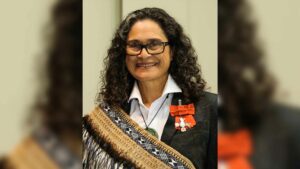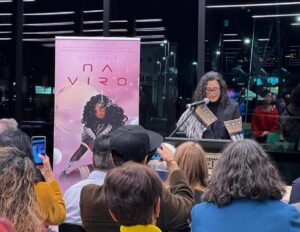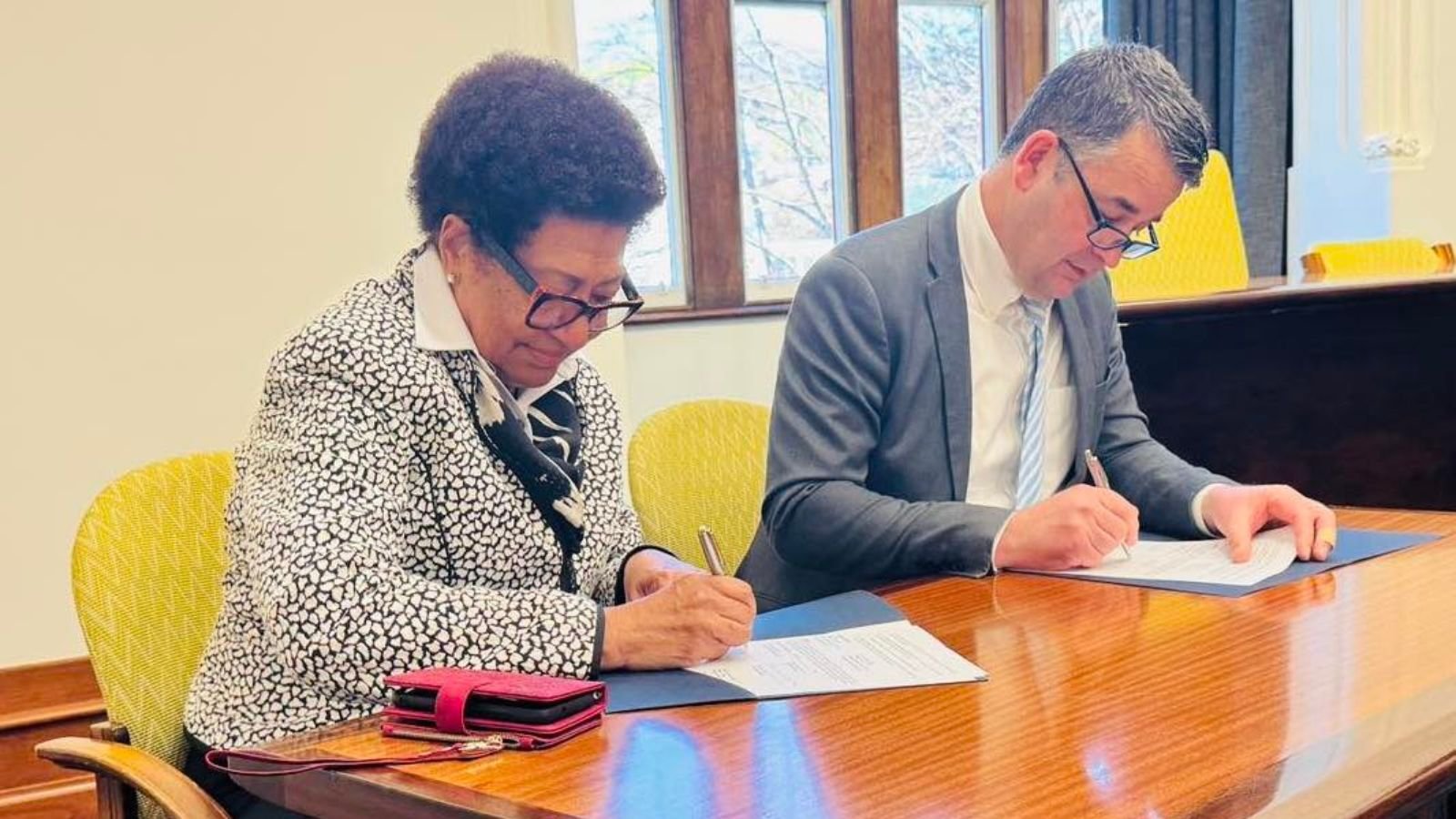Public Interest Journalism funded through NZ On Air
She’s a qualified barrister and solicitor having practised law for many years before transitioning to science fiction writing.
She’s Gina Cole, now a trailblazer in the world of science fiction, pioneering the sub-genre she calls “Pasifikafuturism”.
“Writing was something that I always did on the side, I was always scribbling but never showed anyone,” she says.
After practising law for twenty-seven years, she took a chance on her speculative fiction writing. Now, Cole is one of the few Pasifika writers to date, who feature Pacific characters and space stories in science fiction, a genre she has been passionate about since childhood.
“I remember days of sitting by the TV and watching the 1970’s Star Trek series, I think that was when my love of science fiction first began,” Cole says.
Her passion for the genre persisted throughout her legal career, and she eventually felt compelled to pursue writing professionally.

Initially, she practised law during the day and wrote in her spare time, applying to a master’s degree program in creative writing.
However, the strain of juggling both commitments became too much, and she ultimately decided to make the transition to writing full-time.
She currently holds a PhD in creative writing and has been named an Honorary Fellow in writing at the University of Iowa.

In her recently published work, Cole explores the intersection of Pacific knowledge and science fiction, offering an Indigenous theoretical approach to the “science” in science fiction.
“Pacific cultures are dynamic and can respond and adapt to change, and that the resurgence of traditional knowledge is an example of how it is possible to recover and affirm customary knowledge as an evolving, living practice,” she says.
Cole argues that science fiction can be used as a tool to critique and subvert the colonisation of Indigenous peoples.
“For Pacific peoples, colonialism and imperialism are not just part of science fiction tropes; they are a reality,” she says.

She draws attention to how European colonists propagated stories of ‘ferocious savages’ and ‘Feejee islanders’’ with cannibalistic appetites in speculative fiction, feeding European reading audiences hungry for the colonial adventure ethos.
Taking the ‘fiction’ out of science fiction, Cole offers a Pasifikafuturist point of view that privileges Pacific culture and knowledge, imagining a future where Pacific peoples continue to exist and thrive.
“By doing so, we can engage in anti-colonial mindscapes that embody the spirit of struggle and survival for Indigenous peoples in the Pacific,” she adds.
Cole’s work is an important contribution to the science fiction genre, offering a new perspective that embraces diversity and challenges the dominance of European culture and knowledge.
She encourages those in the Pacific community who work in a nine-to-five job with an interest in writing, to pursue their passions towards publishing, especially later on in their lives, to take a chance and take that risk because there is a need for our writings and our perspective on speculative fiction, “they need to be told.”
And Cole will feature at the Auckland Writers Festival (May 16 – 21) as a panellist on the Pasifika Publishing Wayfinders Panel at the Aotea Centre on May 20th.












